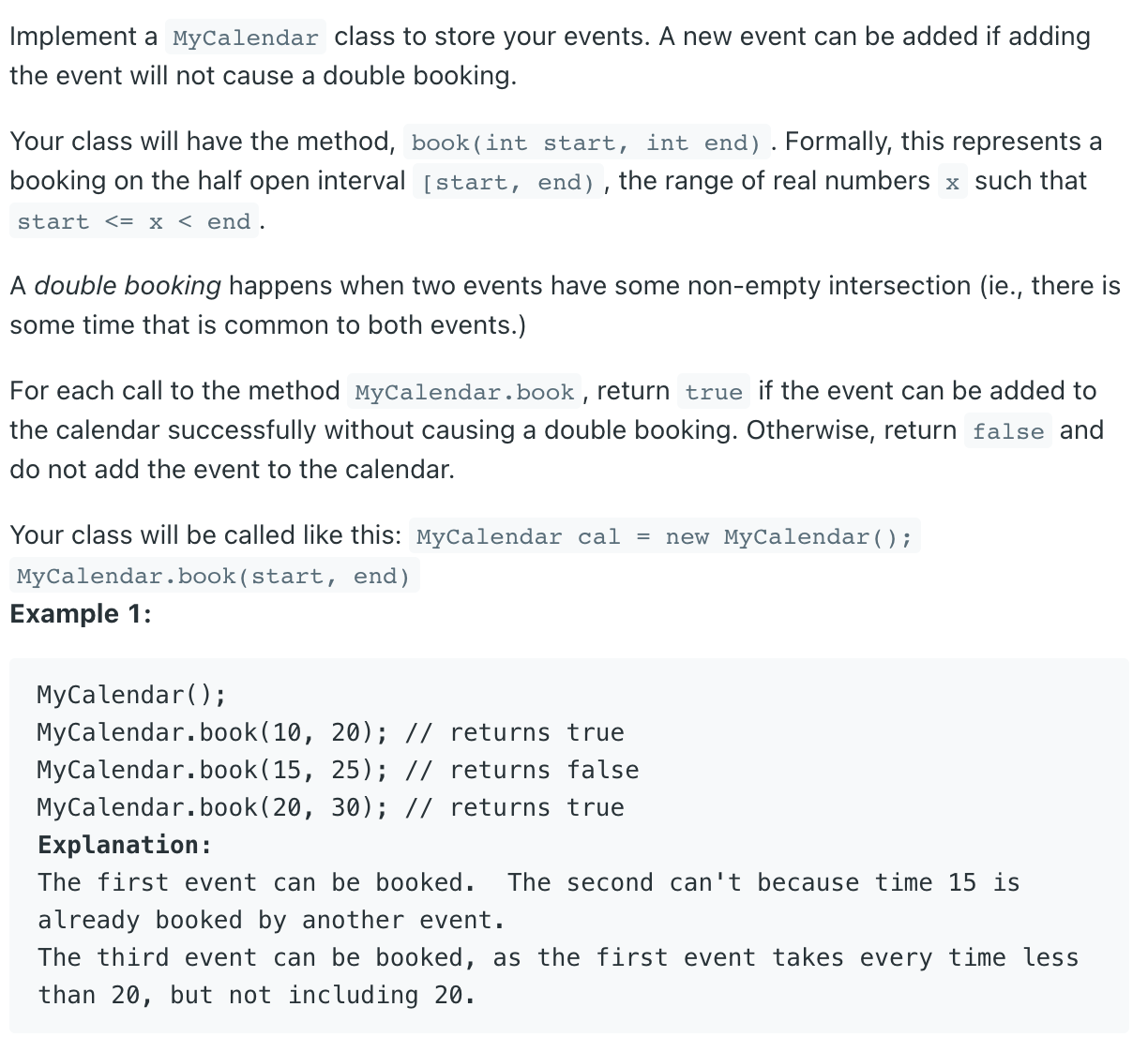My Calendar I
- Difficulty: Medium
- Type: Binary Tree
- link
Problem

Solution
- Binary tree solution
- Time Complexity: (From Leetcode Solution) O(n^2) worst case, with O(n log n) on random data. For each new event, we insert the event into our binary tree. As this tree may not be balanced, it may take a linear number of steps to add each event.
class Node:
def __init__(self,start,end):
self.start = start
self.end = end
self.right,self.left = None, None
def insert(self,node):
if node.start >= self.end:
if not self.right:
self.right = node
return True
return self.right.insert(node)
elif node.end <= self.start:
if not self.left:
self.left = node
return True
return self.left.insert(node)
else:
return False
class MyCalendar:
def __init__(self):
self.root = None
def book(self, start: int, end: int) -> bool:
if not self.root:
self.root = Node(start,end)
return True
return self.root.insert(Node(start,end))
- Brute Force solution
- Time Complexity: O(n^2) (n = number for events booked)
- Space complexity: O(n)
class MyCalendar:
def __init__(self):
self.calender = {}
def book(self, start: int, end: int) -> bool:
if not self.calender:
self.calender[start] = end
return True
for k in self.calender.keys():
if k < start and self.calender[k] > start:
return False
elif k > start and k < end:
return False
elif k == start:
return False
self.calender[start] = end
return True
